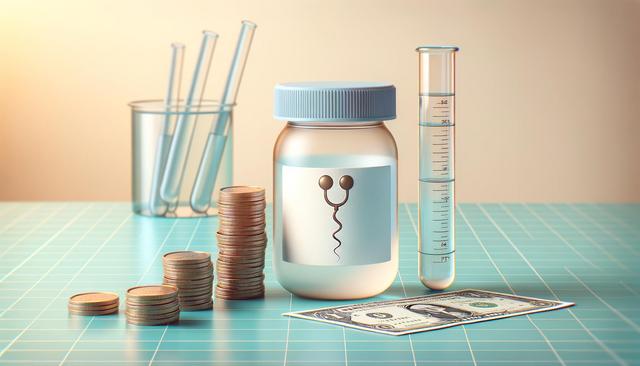Understanding Body Image: A Comprehensive Overview
Body image refers to the perception and attitude an individual holds about their physical appearance. This perception can be influenced by a variety of factors, including cultural norms, media representations, and personal experiences. In today’s society, where visual impressions are often prioritized, body image has become a significant concern for many. According to a study published in the Journal of Youth and Adolescence, body image dissatisfaction is prevalent among adolescents, with about 50% of girls and 30% of boys reporting dissatisfaction with their bodies.
Body image is not merely about how one looks; it encompasses how one feels about their appearance and how they believe others perceive them. This internal dialogue can lead to either positive or negative body image. A positive body image is characterized by self-acceptance and appreciation of one’s unique physical traits, whereas a negative body image can result in feelings of shame, anxiety, and self-consciousness.
Several factors contribute to body image perceptions, including family dynamics, peer influences, and exposure to media. The role of social media, in particular, has been widely discussed, with platforms often showcasing idealized body types that can distort perceptions of normalcy and beauty. Understanding the complexity of body image is crucial as it lays the foundation for addressing related issues, such as self-esteem and mental health.
The Impact of Body Image on Self-Esteem
Self-esteem is the overall sense of self-worth or personal value. It is a crucial component of mental health and well-being. Body image plays a significant role in shaping self-esteem, particularly during formative years. When individuals have a positive body image, they are more likely to develop a healthy self-esteem. Conversely, a negative body image can lead to low self-esteem, which may result in mental health challenges such as depression and anxiety.
Research indicates that body dissatisfaction is correlated with lower self-esteem. A study published in the International Journal of Eating Disorders found that individuals who experience body dissatisfaction are at a higher risk of developing eating disorders, which further impacts their self-esteem. The cyclical nature of this relationship can create a challenging environment for those affected.
To mitigate the negative impact of body image on self-esteem, it is essential to promote body positivity and acceptance. Encouraging individuals to focus on their strengths and qualities beyond physical appearance can help build a more resilient self-esteem. Additionally, fostering environments that celebrate diversity and inclusivity in body types can contribute to healthier perceptions and attitudes towards one’s body.
Factors Influencing Body Image and Self-Esteem
Several factors influence body image and self-esteem, ranging from individual experiences to broader societal influences. Cultural norms and societal standards play a pivotal role in shaping perceptions of beauty and body image. These standards are often perpetuated by media and advertising, which can create unrealistic expectations and pressure individuals to conform.
Family and peer influences are also significant contributors. Family attitudes towards body image and weight can impact an individual’s self-perception from a young age. Similarly, peer interactions and the desire for social acceptance can influence body image and self-esteem. Positive reinforcement from peers can enhance self-esteem, while negative comments or bullying can have detrimental effects.
Personal experiences, such as past trauma or significant life events, can also affect body image and self-esteem. For instance, individuals who have experienced bullying or discrimination based on their appearance may develop a negative body image and low self-esteem. Understanding these factors is crucial for developing strategies to support positive body image and self-esteem.
Strategies for Improving Body Image and Self-Esteem
Improving body image and self-esteem requires a multifaceted approach that addresses both internal and external factors. One effective strategy is practicing self-compassion, which involves treating oneself with kindness and understanding rather than harsh judgment. This approach can help individuals develop a more positive and accepting view of their bodies.
Engaging in activities that promote physical and mental well-being can also enhance body image and self-esteem. Regular physical activity, for example, is associated with improved mood and body satisfaction. Mindfulness practices, such as meditation and yoga, can help individuals cultivate a greater sense of self-awareness and acceptance.
Building a supportive community is another crucial strategy. Surrounding oneself with positive influences and engaging in open conversations about body image can foster a more accepting and encouraging environment. Additionally, challenging societal norms and advocating for diverse representations in media can contribute to broader cultural changes that support positive body image and self-esteem.
Promoting Positive Body Image and Self-Esteem in Society
Promoting positive body image and self-esteem on a societal level involves collective efforts from individuals, communities, and institutions. Education plays a vital role in this endeavor. Implementing programs that teach media literacy and critical thinking skills can help individuals navigate and challenge unrealistic portrayals of beauty and body standards.
Media and advertising industries have a responsibility to represent diverse body types and challenge traditional beauty norms. By showcasing a variety of shapes, sizes, and abilities, these industries can contribute to a more inclusive and accepting perception of beauty. This shift can help reduce the pressure to conform to narrow standards and encourage self-acceptance.
Finally, policy changes that promote mental health support and resources can play a significant role in fostering positive body image and self-esteem. Access to counseling and support services can provide individuals with the tools they need to develop a healthier relationship with their bodies and self-worth. Together, these strategies can create a more supportive environment that empowers individuals to embrace their unique selves.




Leave a Reply